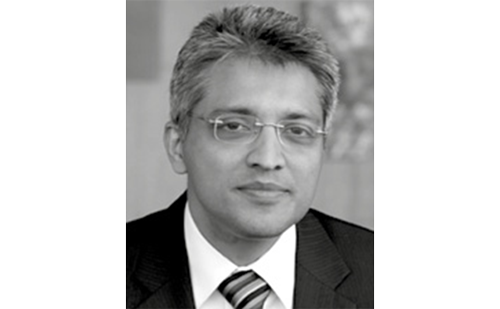Ironically, after several decades of intensive research but much criticism from the public at large for failure to progress the outcomes of cancer, we are now facing the problem of prioritising new methods of diagnosis and treatment – the very consequences of successful research that the world cannot afford!
Ironically, after several decades of intensive research but much criticism from the public at large for failure to progress the outcomes of cancer, we are now facing the problem of prioritising new methods of diagnosis and treatment – the very consequences of successful research that the world cannot afford!
In recent years there have at long last been truly outstanding developments in cancer management that bring us at the beginning of the 21st century to a range of new possibilities for the diagnosis and management of cancers; but no society in the developed world has the resources to make all of these treatments available to everyone in need.
The papers in this issue of European Oncological Disease highlight some of the important developments in, for example, the use of radiotherapy for breast cancer using intra-operative radiation and recent advances in image-guided radiation therapy. The papers on gastrointestinal stromal tumours emphasise the very rapid development of treatments for a disease entity that was rarely spoken of until the development of molecularly focused therapy with imatinib. The search for more specific tumour markers is an area of intense research activity and there are papers reporting developments in this, for both diagnosis and monitoring therapy. The field of supportive care quite rightly attracts more and more interest and there are papers on the consequences of anaemia in cancer patients, and the use of bisphophonates for the treatment of bone pain in elderly patients.
The academic community continue to clamour for more funds for cancer research yet clinical research in general and trials in particular are more cumbersome to initiate and infinitely more expensive to conduct than at any time in the past. Information available to patients through the Internet continually encourages patients to correctly demand more and more of the latest available therapies – but somebody has to pay. Setting priorities in healthcare in general and cancer in particular is going to present one of the great social dilemmas in the next decade. How can professionals contribute to this priority setting? One obvious way is by meeting to debate the complex issues involved. The Federation of European Cancer Societies (FECS) is unique in representing all the professional disciplines involved in cancer management and, in response to the challenges referred to, FECS is expanding to provide a comprehensive platform for oncologists, nurses, cancer researchers and patient representatives to discuss how to approach these complex translations of science into healthcare improvement.
The flagship ECCO meetings provide a bi-annual forum for presenting the latest results of research ,and also educational and training opportunities, but over and above this FECS will provide a forum for discussion and debate. Politicians and healthcare providers do listen to professionals if they speak with consensus – but ultimately it is patients and their advocates who have the loudest voice. In the coming years FECS will be the forum where professionals, politicians, patients and their advocates meet to discuss, debate and hopefully progress this daunting but unavoidable challenge. ■
Foreword – European Oncological Disease, 2006;1(2):8-9
Article
Further Resources
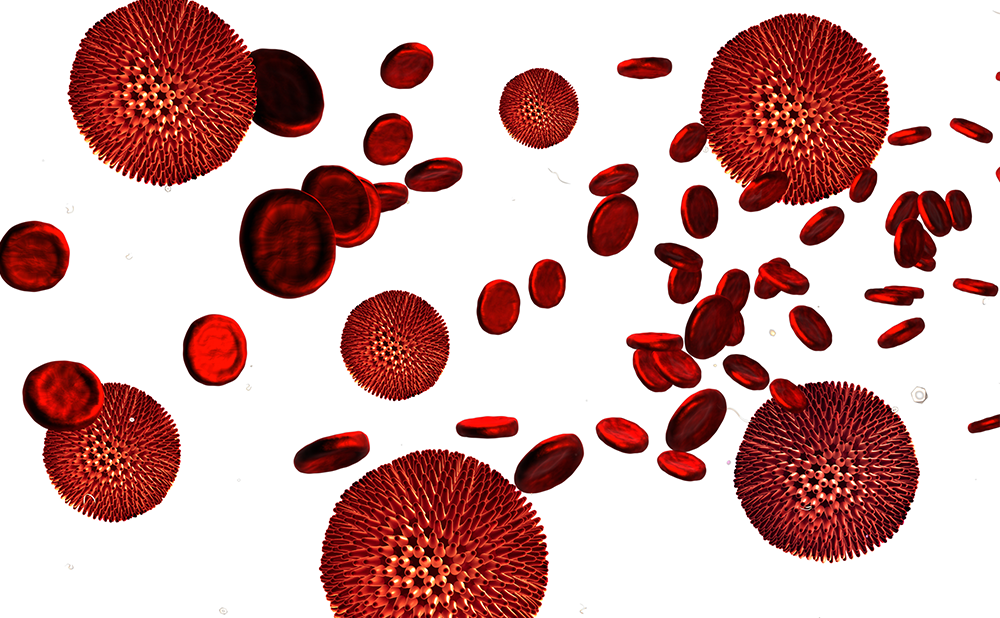
Trending Topic
Mutations of the β-globin gene (HBB) cause sickle cell disease and β-thalassaemia, collectively named the β-haemoglobinopathies. As mankind’s most common severe genetic diseases, where they are most prevalent, public health systems can be stressed.1–3 Asymptomatic heterozygous carriers are protected from severe P. falciparum infection. This has allowed the causative genes to reach polymorphic frequencies in some tropical […]
Related Content in Haematology

Severe haemophilia A (HA), defined as baseline factor VIII (FVIII) levels of <1%, results in traumatic and spontaneous bleeding episodes, which occur primarily in the joints, in addition to the muscles, soft tissue and the central nervous system. Prophylactic treatment ...

In recent years, our understanding of the complement system and its role in disease has increased dramatically. With the advent of complement 5 (C5) and C3 inhibitors, our ability to manipulate the complement system has improved the outcomes and quality of ...

Current treatment landscape in Canada Waldenström’s macroglobulinaemia (WM) is a rare haematological disorder with an incidence of about three cases per million, leading to approximately 150 new cases per year in Canada.1,2 WM is characterized by a clonal lymphoplasmacytic ...

Paroxysmal nocturnal haemoglobinuria (PNH) is a rare, chronic haematological illness. The condition presents on a background of bone marrow failure, and affected individuals can experience an array of symptoms due to chronic haemolysis, as well as episodes of acute haemolysis ...

The chronic anaemia of beta-thalassemia major (b-thal) results from defective erythropoiesis secondary to a genetic defect in haemoglobin synthesis.1 Consequently, patients with moderate-to-severe disease rely on blood transfusions to maintain an adequate level of haemoglobin.2 Over time, this causes an ...

Beta-thalassaemia is a hereditary blood disorder arising from impaired synthesis of beta globin chains, and can result in a range of outcomes from asymptomatic carriers to severe anaemia.1 Symptomatic thalassaemia presents in around 1 in 100,000 people worldwide, and 1 in 10,000 in Europe.1 ...

Gaucher disease is the most common of the lysosomal storage disorders.1 Although individually rare, these disorders as a group are relatively common, with an incidence of about 1 in 8,000 live births,2 and therefore represent an important health problem. Gaucher disease is ...
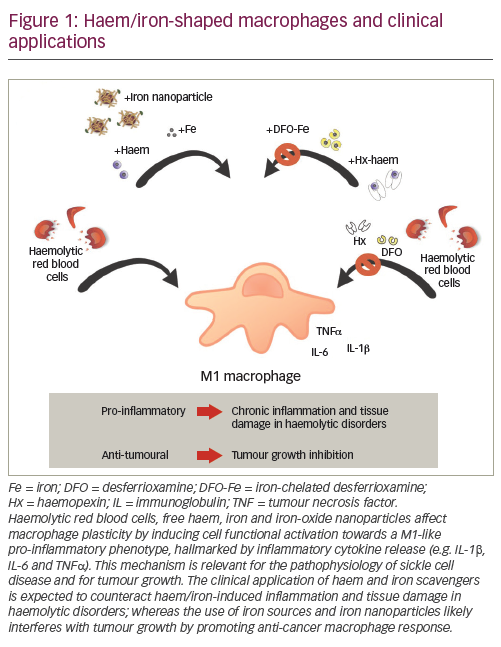
Reticulo-endothelial (RES) macrophages are central for the regulation of iron homeostasis. These cells have the ability to handle a high amount of haemoglobin-derived iron, released after senescent red blood cell phagocytosis. Eventually, iron is exported to the bloodstream through the ...
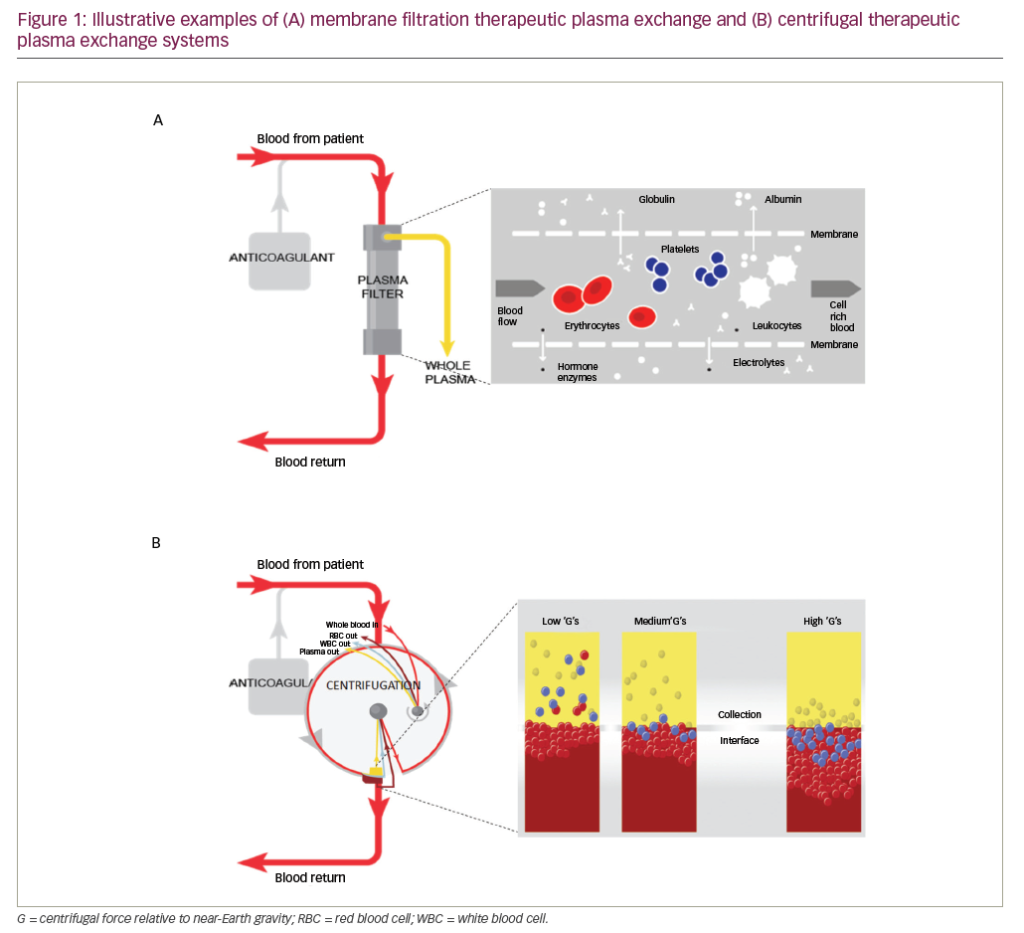
Therapeutic plasma exchange (TPE) is an extracorporeal technique that involves separating a large volume of a patient’s plasma from the cellular components of the blood and replacing it with appropriate fluids.1 In patients with conditions that are induced and/...

Welcome to the fall edition of Oncology and Hematology Review, which features a wealth of topical and practical content for oncologists and hematologists, as well as being of interest to the wider medical community. Our expert interviews continue to ...
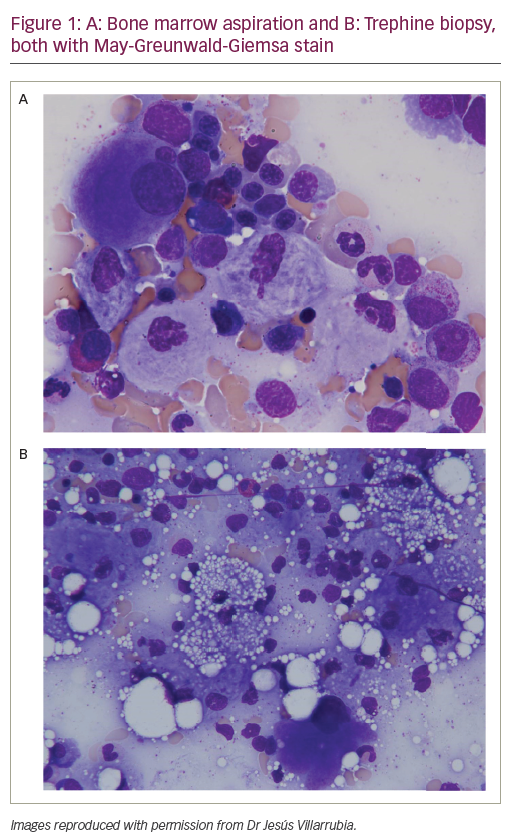
Diagnosis is often delayed in patients with Gaucher disease type 1 Case 1 A 37-year-old Caucasian woman with spherocytosis reported since childhood presented with swollen ankles, gradually increasing abdominal girth, sudden weight gain (3 kg in 6 days), fatigue and exertional dyspnoea. Patient history ...
Latest articles videos and clinical updates - straight to your inbox
Log into your Touch Account
Earn and track your CME credits on the go, save articles for later, and follow the latest congress coverage.
Register now for FREE Access
Register for free to hear about the latest expert-led education, peer-reviewed articles, conference highlights, and innovative CME activities.
Sign up with an Email
Or use a Social Account.
This Functionality is for
Members Only
Explore the latest in medical education and stay current in your field. Create a free account to track your learning.


